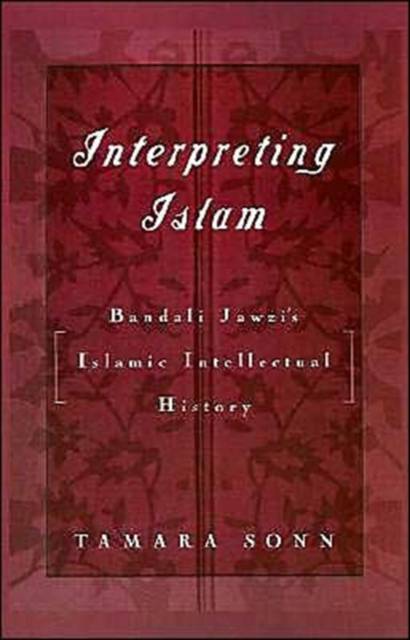
Bedankt voor het vertrouwen het afgelopen jaar! Om jou te bedanken bieden we GRATIS verzending (in België) aan op alles gedurende de hele maand januari.
- Afhalen na 1 uur in een winkel met voorraad
- In januari gratis thuislevering in België
- Ruim aanbod met 7 miljoen producten
Bedankt voor het vertrouwen het afgelopen jaar! Om jou te bedanken bieden we GRATIS verzending (in België) aan op alles gedurende de hele maand januari.
- Afhalen na 1 uur in een winkel met voorraad
- In januari gratis thuislevering in België
- Ruim aanbod met 7 miljoen producten
Zoeken
€ 271,45
+ 542 punten
Omschrijving
In this book, Sonn provides the first English translation of The History of Intellectual Movements in Islam (1928), a seminal text of Arab modernism written by the Palestinian intellectual Bandali al-Jawzi (1871-1942). In that book, Jawzi offered the first Marxist interpretation of the history and development of Islamic thought. The continuing importance of his work lies in Jawzi's critical method of reevaluating both European "orientalist" and classical Muslim accounts of Islamic history. Fifty years before Edward Said's landmark Orientalism, Jawzi identified the vested imperial interests as the weakness in both methodologies. Sonn's translation brings to life this skillful and entertaining critique of Islamic history. Her introduction places Jawzi's thought in context with both postmodern intellectuals and Muslim reformers who continue the struggle to apply Islamic principles to contemporary life.
Specificaties
Betrokkenen
- Auteur(s):
- Vertaler(s):
- Uitgeverij:
Inhoud
- Aantal bladzijden:
- 224
- Taal:
- Engels
Eigenschappen
- Productcode (EAN):
- 9780195100518
- Verschijningsdatum:
- 10/10/1996
- Uitvoering:
- Hardcover
- Formaat:
- Genaaid
- Afmetingen:
- 164 mm x 244 mm
- Gewicht:
- 535 g

Alleen bij Standaard Boekhandel
+ 542 punten op je klantenkaart van Standaard Boekhandel
Beoordelingen
We publiceren alleen reviews die voldoen aan de voorwaarden voor reviews. Bekijk onze voorwaarden voor reviews.









